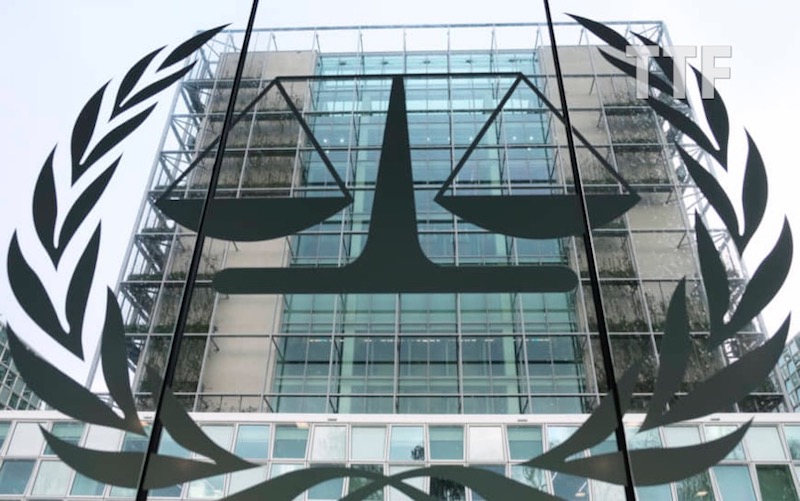
Ramesh Thakur
CANBERRA: Shortly before ending my tenure at the U.N. University in Tokyo in 2007, I spoke to several Diet members regarding the International Criminal Court. Becoming party to it was under active consideration by the Diet. I explained why the court was a progressive step in consolidating the international humanitarian regime. As argued in these pages on Dec. 12, 2007, the ICC would hold perpetrators of atrocities against civilians to international criminal account, I explained, while the sibling norm of the Responsibility to Protect would aim to protect the victims. On July 17, 2007, Japan duly became an ICC member.

Without implying influence over the outcome, I now regret my ICC recommendation. On April 12, its own judges sounded the death knell of the court. They rejected a request from the ICC prosecutor, Fatou Bensouda, to launch formal investigations into allegations of war crimes committed in Afghanistan. After this, why would anyone bother to urge that Amnesty International’s claims of 1,600 civilians killed in U.S.-led coalition airstrikes on Raqqa, Iraq, in 2017 should be investigated with a view to possible international criminal prosecution? The ICC’s demise will mark the death of one more conceit of liberal international humanitarianism.
U.S. President Donald Trump, whose capacity for moral reasoning on complex international issues is well-known, hailed the announcement as a “major international victory” for “the rule of law.” By contrast, Biraj Patnaik, Amnesty International’s South Asia director, said that after more than a decade of “heinous crimes committed with near-absolute impunity” in Afghanistan, the judges’ decision was a “shocking abandonment of victims” that would “weaken the court’s already questionable credibility.”
The ICC was created in 1998 and began operating in 2002. U.S. President Bill Clinton signed but never submitted the treaty for Senate ratification. U.S. President George W. Bush “unsigned” it in 2002. The current number of states parties — 123 — is seriously misleading. Over 70 countries, which account for two-thirds of the world’s population and 70 percent of its military forces, are not members, including China, Egypt, India, Indonesia, Iran, Pakistan, Russia, Turkey and the United States.
The ICC’s troubled experience has belied the idealistic hopes of advocates. A criminal justice system cannot function without legislative and executive branches of government as essential props. The absence of an elected and accountable world legislature and executive undermines the court’s legitimacy, making it the instrument of a technocratic elite. The UN Security Council can refer cases to the ICC and defer cases before the court, meaning the geopolitics of the Security Council contaminate the court’s judicial processes. In a violation of natural justice, countries that are not ICC members — including three permanent members — can nevertheless vote on decisions relating to the court.
Its institutional integrity was called into question by the way it handled allegations of sexual misconduct against the first prosecutor in 2005, as documented by Africa experts Julie Flint and Alex de Waal. This might yet attract fresh attention from the #MeToo movement. Its operations have been time-consuming and very costly: seven completed cases and three convictions in 17 years.
The most sustained criticism came from Africans who faulted the ICC for targeting only Africans, jeopardizing delicate peace negotiations in Kenya, Uganda, Sudan and Libya, and disrespecting African views. In 2012, Nobel Peace Laureate Desmond Tutu refused to share a stage with former British Prime Minister Tony Blair, saying Blair should be in the dock in The Hague answering for his crimes in the Iraq War.
Kenya has refused to hand over suspects to the ICC. On Jan. 31, 2017, the African Union adopted a nonbinding resolution calling for a mass withdrawal from the ICC. Burundi became the first country to withdraw in 2017. South Africa was set to follow, but its high court ruled the decision unconstitutional. The list of non-cooperating states includes India. Russia withdrew its signature in October 2016.
In an implicit acknowledgment of the extreme political sensitivity of the Afghanistan case, the initial probe by the ICC prosecutor, begun in 2007, was inordinately prolonged without any public explanation. After a 10-year investigation, Bensouda concluded there was a reasonable basis to believe that Afghan government forces and the Taliban had committed war crimes, and the U.S. military had committed torture at secret CIA detention sites. The response from John Bolton, then at the conservative American Enterprise Institute, was blunt: The U.S. should “strangle the ICC in its cradle.”
Speaking on Sept. 10, now as U.S. national security adviser, Bolton attacked the ICC as “illegitimate” and “dead to us.” If it prosecuted Americans, the U.S. would impose sanctions both on the ICC as an institution and on its personnel. On Jan. 28, the ICC’s German judge, Christoph Flugge, referencing the threats from Bolton, resigned in protest. The ICC’s termination of the Afghanistan probe came one week after U.S. Secretary of State Mike Pompeo publicly revoked Bensouda’s visa.
Following the most “craven capitulation to Washington’s bullying and threats” (Amnesty International’s Patnaik) by ICC judges in the brief history of international criminal justice, mass defection from the ICC is not just legally permissible but may be the most morally responsible course of action. International law, like all law, seeks to mediate relations between the rich and the poor, the weak and the powerful, by acting as a constraint on capricious behavior and setting limits on the arbitrary exercise of power.
By remaining, states parties will sanctify the weaponization of international justice mechanisms to be used by the powerful against the weak but never against any of their own. Laws act both as a license and a leash. Henceforth, China, Russia and the U.S. will be able to use the ICC to impose accountability on others under the enabling function of international criminal law but escape its restrictive leash limitations for their own international conduct. No self-respecting and law-abiding state should be complicit in such a monstrous perversion of the ICC statute.
Imagine if China or Russia rather than the U.S. had been in the cross hairs of a full-fledged ICC investigation, but the court refused to proceed. The Western mainstream media would have launched full-throated attacks on the credibility, legitimacy and viability of the ICC. But because it is the U.S., there seems to be a near-complete conspiracy of silence in the opinion pages of the main newspapers. Yet almost all who were willing participants in the hysterical lies that fed into the Iraq War find ready space still in these pages for their distorted views. Is it any wonder that big media has lost global respect and credibility.
Source:



